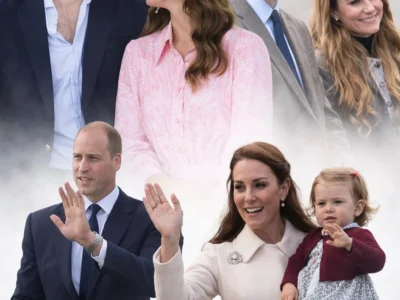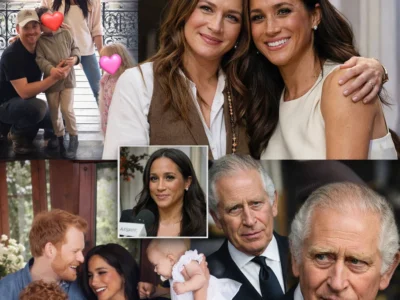
Meghan Markle talked to school children about “being one of the most bullied people in the world,” around a month on from a new set of allegations against her.
The Duchess of Sussex was accused by a senior staffer of belittling employees like a “dictator in high heels” in an anonymous briefing to The Hollywood Reporter in early September.
Meghan’s team launched a fightback in the pages of Us Weekly at the end of the month, with glowing commendations of the duchess from past and present personnel. And during a recent visit in California to nonprofit Girls Inc in support of #HalfTheStory, which campaigns for responsible technology, Meghan reaffirmed her own status as a victim of bullying on social media.
Larissa May, founder of #HalfTheStory, told magazine Vanity Fair: “We did an activity where we talked through a bunch of scenarios, and Meghan talked about being one of the most bullied people in the world.
“We had girls wave these little emoji signs and talk about how each one of these scenarios would have impacted them emotionally,” May added.
The visit in Greater Santa Barbara, California, took place on October 2, but the details emerged for the first time in Vanity Fair on Friday.
Meghan was first accused of being hard to work for in U.K. broadsheet The Sunday Times in December 2018, when she was nicknamed “Duchess Difficult.”
The following year saw her prolifically trolled on social media and become a regular target in the British tabloids, while, in 2020, she told the Teenager Therapy podcast it was “almost unsurvivable.”
Meghan said: “In 2019, I was the most trolled person in the entire world, male or female.
“Eight months of that,” she added, “I wasn’t even visible, I was on maternity leave with the baby—but what was able to be manufactured and churned out, it’s almost unsurvivable. It’s so big, you can’t even think what that feels like.”
Meghan and Prince Harry have sought to blame the tide of hostility on a series of stories in the British press, including the ‘Duchess Difficult’ allegations, creating an ongoing and unresolved tension between these twin narratives.
This reappeared in March 2021 when U.K. broadsheet The Times published an email from a former staffer accusing Meghan of bullying two personal assistants out of Kensington Palace in London and targeting a third staffer.
Days later, there was Meghan and Harry’s television interview with Oprah Winfrey, in which they accused the royals and the palace of refusing to back the duchess as a victim of the tabloids.
In particular, Meghan focused on articles that she suggested wrongly accused her of making her sister-in-law Kate Middleton cry, when she said “the reverse” happened.
“I just didn’t want to be alive any more,” Meghan told Oprah. “And that was a very clear and real and frightening constant thought.”
In 2024, once again, the media is home to two diametrically opposed characterizations of Meghan as either victim or perpetrator, depending on which publication a person reads.
Harry’s memoir, Spare, does appear to acknowledge the existence of a “poisoned” atmosphere at Kensington Palace when they shared the private office with Prince William and Princess Kate. The prince said staff broke down in tears, seemingly in summer 2018, months before the ‘Duchess Difficult’ narrative had emerged in the press.
Harry wrote that William blamed the problems entirely on Meghan but he added that his wife did nothing wrong and that the “real villains” were staff his brother brought in from the U.K. Government.
More recently, Harry has also been promoting the couple’s work on the harm that digital technology poses to children and was quoted in Fortune magazine as saying: “The smartphone is stealing young people’s childhoods.
“It’s a double-edged sword,” Harry added. “[Parents] want them to have their phone at school in case of emergency, but once, like any kid, you have your phone, even if you’re told you’re not allowed to download that app, kids have a way of working around it.”


